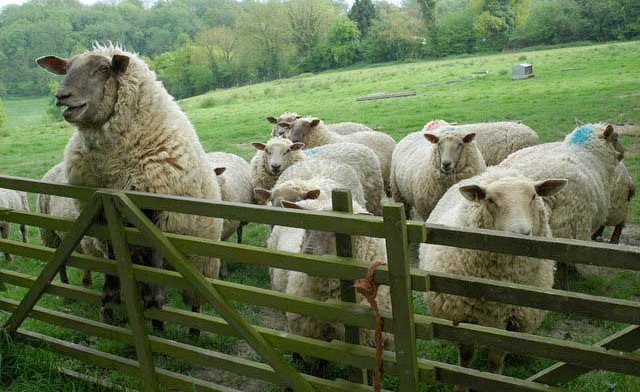
The consequences of not knowing whether your wormers are working efficiently could be dire for sheep farmers. This is the main message of a new campaign launched by the Animal Health Distributors Association (AHDA) at its annual conference.
The campaign will encourage sheep farmers to make sure that their wormers are working, understand what could happen if they are not, and encourage them to take advice on worming strategy.
Two creative treatments will appear in advertising, on in-store posters and in emails sent direct to producers. One shows a young boy and his grandfather on a deserted sheep farm with the headline ‘Grandad, where have all the sheep gone?’. The second treatment simply shows a sheepdog with a ‘For Sale’ notice around its neck and the headline ‘Oh well, he could always retrain as a guard dog.’
AHDA Chairman Ian Mennie said: “The warning contained in these advertisements is very stark, but it is important that sheep farmers understand the seriousness of the situation. If we don’t get it right the consequences for the industry could be far-reaching.
“AHDA’s member companies and their staff are very much on the frontline when it comes to resistance. We have an obligation to make sure that the advice we give and the products we recommend are absolutely right for the circumstances on each individual farm. The campaign will explain why such detailed information is required, the amount of training undertaken and level of expertise that our SQPs are able to offer.”
Independent consultant and representative of SCOPS Lesley Stubbings has contributed to the campaign material. She says: “SCOPS has realised for some time that some farmers do not recognise the need to act while anthelmintics are still apparently working to control clinical disease on their farms.
“In many cases sheep farmers are still achieving good levels of worm control with their current strategies. However, resistance is out there and can be detected if we look for it. We can delay the onset of resistance if we adopt the right strategies. With the wrong strategy the loss of clinical worm control can be very rapid – potentially within a single grazing season.”
